After making good on his first term to appoint the justices who overturned Roe v. Wade, former President Donald Trump has clearly moderated his approach. Last week, Trump announced that his next presidential administration would fund IVF treatments and flirted with supporting Florida’s “Right to Abortion” amendment, which set off an (effective) panic among pro-life stalwarts. Though he backed down from supporting Florida’s measure, Trump’s shift has created considerable consternation among pro-lifers about how to vote: Should we punish Republicans and Trump for becoming less distinctly pro-life in their policy aspirations, with the hopes of maintaining leverage as an “interest group” within the party? Or should we vote for Trump on the basis that the Harris administration would likely be the most pro-choice administration in American history?
I find these debates especially fascinating, as eight years ago I was among a tiny cadre of writers who argued against voting for Trump because I am pro-life, meaning that I think abortion is gravely morally wrong and that Americans should use both policy and law to radically curtail access to it. My prudential pro-life case against Trump took two forms. First, I argued that Trump’s promise to appoint Supreme Court justices who would overturn Roe was unreliable—a judgment that was spectacularly wrong. (Never have I been so happy to be wrong about something than the day Dobbs was officially released.) As I observed for Dispatch Faith a few weeks back, evangelicals and the pro-life movement had always been outsiders to the mainstream of the Republican Party, much like Donald Trump was in 2016. My suspicion was that once Trump no longer needed the pro-life movement for votes, he would abandon it. I was wrong—or, perhaps, premature—and spent the past eight years in the wilderness largely refraining from commentary on politics as penance.
The second objection to Trump then was that he would eventually undermine the pro-life movement, either by liberalizing or by tarnishing its credibility. As I wrote then, though we would not know “the real cost of the Trump dalliance until 2020 or beyond,” it is “vanity to think that pro-lifers will not pay one.” The political backlash against Roe’s fall would have happened to any president who appointed the judges who overturned it, but it is impossible for Americans to separate Dobbs from Trump. And as Ross Douthat has pointed out, American society’s general liberalization on abortion began not when Dobbs fell but around 2016, when Donald Trump became president.
I have no interest in anything like a “victory lap,” and not only because I was so far off on the matter of judges. Frankly, I would rather have been wrong about everything: The pro-life movement would be in a much better position if I had been. And one lesson I learned from eight years ago is that histrionics are rarely (if ever) conducive to the kind of public deliberation the pro-life movement needs. As the Victorian writer Wilkie Collins quips in one of his novels, “Virtuous indignation … is sometimes very cheap indignation.” The stakes are too high for the pro-life movement to repeat the cycle of recrimination it underwent eight years ago—which I shared in, and which involved not a few pro-life Trump supporters telling me that I was helping to “kill babies.”
If 2016 was the pro-life movement’s best opportunity to get judges who would overturn Roe, though, 2024 is our best opportunity to rethink our politics from the ground up. The primary question pro-lifers should be considering is not who they vote for in November, but how they will navigate an electorate that is increasingly skeptical about pro-life aspirations.
The post-Dobbs electorate.
The immediate source of the pro-life crisis is not Trump, but the movement’s failures to adapt to the post-Dobbs political environment. Since Roe fell, abortion has been on state ballots seven times. Pro-lifers lost every one. The shifts in polling on abortion restrictions were well underway by this point, and there is some evidence to think the American electorate is biased toward the status quo, which would make them more likely to protect existing political rights when they are threatened. Despite these headwinds, leading pro-life organizations drew a “red line” during this year’s primary campaign for presidential support for a 15-week federal abortion ban.
But the most obvious lesson from 2016 for pro-lifers should be to trust Trump’s political instincts. Trump’s first signal that he would no longer be guided by the movement was when he announced his intention to leave abortion restrictions to the states. The “red line” was quickly redrawn, as it was again when the GOP changed its platform. Trump has found the limit of what the pro-life movement can countenance with his potential support for Florida’s Amendment 4—but his decision also sets an extraordinarily low threshold for what a president needs to commit to in order to win pro-life votes. It’s a long way from supporting a federal abortion ban to voting “no” on a constitutional amendment protecting abortion to birth.
All this was easily avoidable. Trump has carved out a politically palatable position that the pro-life movement could have proactively embraced as the next step on our long march toward eliminating abortion providers in America. Instead, the pro-life movement’s leadership tried to push candidates into policy positions that are non-starters in the post-Dobbs environment.
The pro-life movement’s failure to understand the political environment has created a no-win situation. Threatening to withhold votes from Trump on pro-life grounds is a risky gambit: If pro-lifers sit out the election or vote third-party and Trump wins, they reveal their own political irrelevance. (Trust me, I know.) If they nudge Trump into unpopular positions and he loses, the Republican Party will likely conclude the movement is to blame for his defeat and continue on its liberalizing trajectory. And if they line up behind Trump and he wins, they are unlikely to receive the credit and political capital they claimed in 2016, precisely because Trump has dragged them into policy stances that they have resisted at every step.
If anything, the pro-life movement has been trading on a narrative about its political power that overstates its influence in national elections. However popular pro-life sentiments are, their role in voting is murky. It is highly plausible that Republican voters prefer politicians who are pro-life but will vote for them only because that issue comes bundled with other, more important concerns.
In 2016, abortion came last on Pew’s survey of topics that debate viewers wanted to hear about. While the fall of Roe seems to have both persuaded voters to sign up for the pro-choice cause and motivated them to vote, the number of pro-life voters who are motivated by abortion considerations to such a degree that they would stay home because Trump is only marginally or superficially “pro-life” is tiny. In the August Siena/New York Times poll of swing states, 31 percent of Democrats listed abortion as their top priority—while only 3 percent of Republicans did. Gallup has shown a similar asymmetry and has suggested that only 8 percent of the electorate requires their candidate to be pro-life. In such a context, all Trump needs to do is be marginally more pro-life than his opponent and he is likely assured of retaining the pro-life movement’s votes. After all, even the most principled of pro-life voters will always have the comparison to Kamala Harris to lean back on in voting.
What happens on the margins of political life is disproportionately important in closely contested elections. After all, the presidency might turn on depressed or enthusiastic turnout in a few swing states. But Trump stands to gain as much or more by giving low-frequency, low-attention, and vaguely pro-life voters reasons to vote for him (and taking away reasons to vote against him), as does placating the institutional voices who make up the “pro-life movement.” While some pro-life writers derided Trump’s attempt to make himself palatable to suburban women as hopelessly unrealistic, he does not need to win all of them to make up for however many pro-lifers he might lose. Trump has done well with that constituency before, and his new “pro-life” positions are perfectly tailored to ameliorate conservatives’ concerns. Though pro-life leaders groused about Trump’s announcement that he would fund IVF treatments, few (white) suburban parents have serious objections to it—including those who are avowedly “pro-life.”
Debates among pro-lifers about how to vote are important, but in the way debates among the online left are important: They reveal what a tiny cadre of elites think, even if they are divorced from the realities of the constituents they claim to represent. They might shape discussions and help Trump identify where the actual “red line” for his pro-life supporters might be, but their real political significance, in terms of the votes they generate, is (in the end) likely to be marginal to non-existent.
Pro-life voters are going to vote en masse for Donald Trump, so long as he offers to preserve the current status quo by vetoing federal bills that would protect abortion access even as he now says he would veto a federal abortion ban. Pro-life institutions and leaders will have to fall in line if they want to maintain the pretense that they direct pro-life votes and preserve what little political clout they have left within the Republican Party—as they probably should.
It’s not 2016 anymore.
Despite pro-lifers’ public hand-wringing, Donald Trump’s unveiled moderation and willingness to broker a “deal” on abortion is good news for the movement.
Trump’s political instincts have clarified for pro-lifers what our task is, if we have the stamina and patience to undertake it. The dissolution of Roe was not a “Pyrrhic victory,” as writer Rod Dreher has alleged. It dismantled the prevailing framework for our politics of reproduction, which was essential for expanding Americans’ imagination about what is required to put abortion pills and abortion providers out of business. A judicially oriented political movement (as the pro-life movement has been since Roe) can deal with isolated cases and tap into intuitions and judgments that individual human beings have rights from the moment of their conception. But democratically determined policies to constrain access to “services” need to make arguments that intersect with and tap into other concerns.
At the same time, Trump’s moderation on abortion has likely definitively closed the door on the radical, “abolitionist” sector of the pro-life world. The surprise of Trump’s 2016 election and subsequent radicalization of Democrats made conservatives believe that anything imaginable might suddenly be possible. Wild debates on the right about “Christian nationalism” and “postliberalism” were fueled, in part, by the political opportunity the upheaval represented. The growth of “abolitionist” pro-lifers, who want to punish women for seeking abortion, was of a piece with these efforts to rethink conservative politics in light of Trump’s victory. While such fringe efforts are likely to remain relevant in deep red states like Oklahoma or Alabama, they clearly have no national constituency of relevance and will likely only further intensify the backlash against the pro-life movement that is already underway, should they ever take hold. Incrementalism is suddenly in vogue again, which is the right stance to have—even if pro-lifers are rediscovering it for the wrong reasons.
It turns out the political wilderness might not be so bad after all. If the pro-life movement continues to be marginalized, so be it. This time around, the fundamental question is not who we should vote for but what we should learn from a mess that is partially of our own making—not by supporting Donald Trump, but by not anticipating and preparing for the fundamental shifts in the electorate and the backlash Dobbs has created. Whatever happens in November, the pro-life movement will need to reset its political calculus and reach a level of maturity it has not yet attained. The wilderness, after all, is a place of exile and testing—but it is also a place of growth.
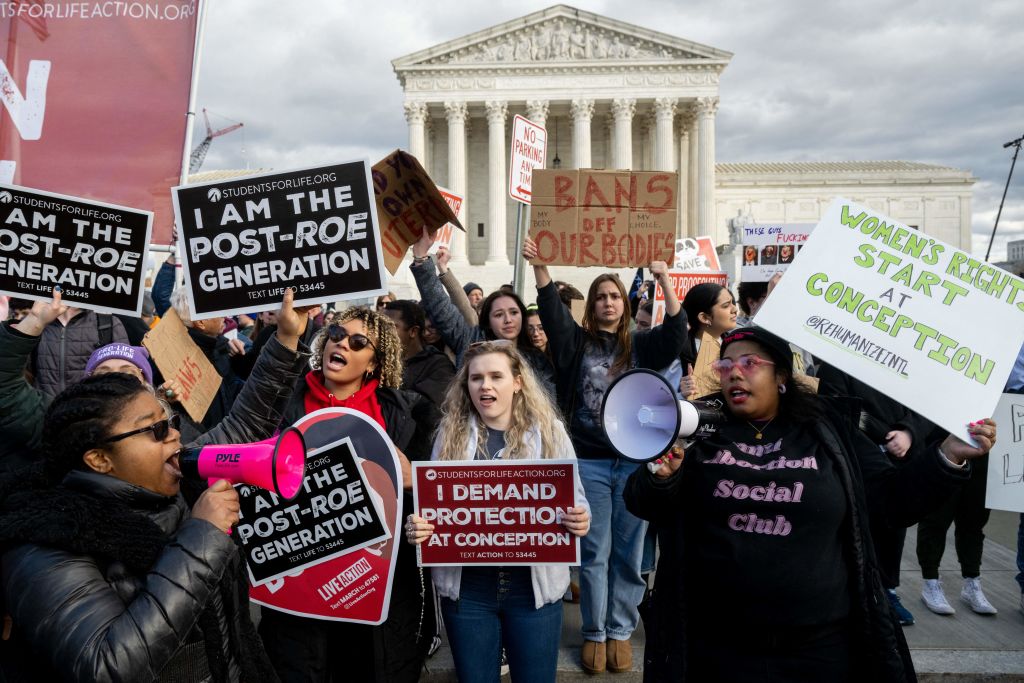
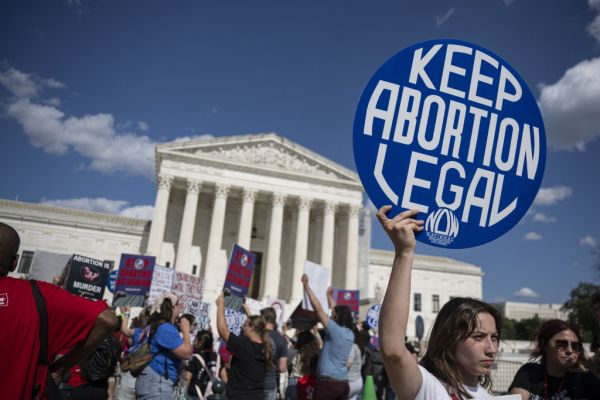
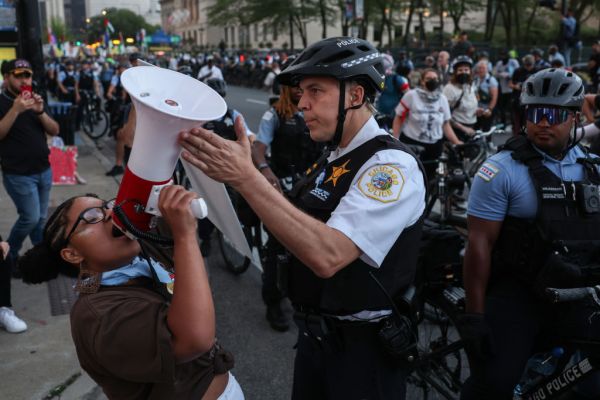
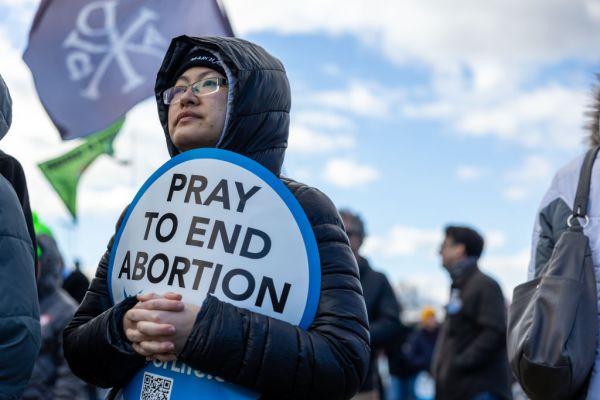

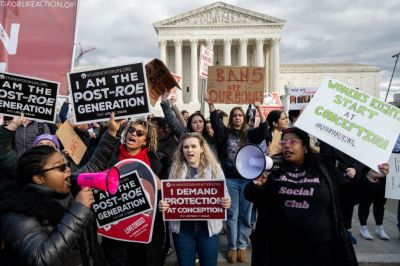
Please note that we at The Dispatch hold ourselves, our work, and our commenters to a higher standard than other places on the internet. We welcome comments that foster genuine debate or discussion—including comments critical of us or our work—but responses that include ad hominem attacks on fellow Dispatch members or are intended to stoke fear and anger may be moderated.
With your membership, you only have the ability to comment on The Morning Dispatch articles. Consider upgrading to join the conversation everywhere.